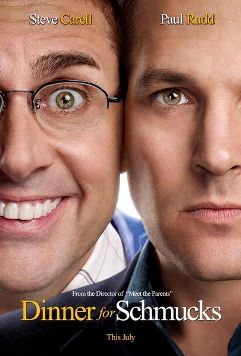May 6, 2010, - 12:43 pm
Meet the New York Times’ New Linguist, Debbie Schlussel: NYT Quotes Me on the Meaning of “Schmuck”
Debbie Schlussel — a kind of all-purpose film critic, political commentator and Web opinion spinner


It’s not the first time the New York Times has cited and quoted me, but it’s definitely the best description of me they’ve given. This week, the nation’s most liberal mainstream media newspaper, the one known as “the newspaper of record,” even cites me with approval as the paper’s Yiddish expert and confirms my Yiddish linguist skills are solid. All those years of listening to my parents and grandparents speaking Yiddish when they didn’t want us to know what they were saying (after we figured out the Hebrew they spoke before that), finally paid off. I wonder what my late father and grandparents would say if they knew the New York Times quoted me on the meaning of the word “schmuck.” Hmmm . . . . Here’s the full quote:
A few weeks ago, Debbie Schlussel — a kind of all-purpose film critic, political commentator and Web opinion spinner — took issue not just with the trailer promoting “Dinner for Schmucks,” about which she wrote on her Web site, debbieschlussel.com, “it looks like utter garbage,” but also with its use of Yiddish.
“The more correct title would have been ‘Dinner for Schlemiels,’ ” Ms. Schlussel insisted, if the filmmakers were trying to describe the geeky behavior displayed Mr. Carell in the pratfall-filled trailer.
The Online Etymology Dictionary would seem to agree, as a schlemiel is described as an “awkward, clumsy person,” while the sort of “contemptible person” referred to in the title would seem more like the characters, one of them played by Paul Rudd, who act like jerks by giving the dinner.
While I can’t really speak a lot of Yiddish, I can understand it quite well, and I’m working on it with books in my collection. But I love etymology. Having learned Russian, French, Hebrew, and Arabic, I’m always interested in the similarities between various words, roots, and conjugation in these languages.
By the way, if you click on over to the New York Times story and aren’t familiar with the word in the title, meshugas [pronounced “Mi-shuh-GOSS”] means “craziness.”
That’s probably how I’d have described the idea of the New York Times citing me on the meaning of one of the most crude words in the Yiddish language, had someone predicted it. But, hey, I’ll take it.
Thanks to New York Times reporter Michael Cieply for recognizing my work in “Movie Title Meshugas.”
More on the word, “schmuck,” at Schmuck U.
Tags: Debbie Schlussel, Dinner for Schmucks, Dinner With Schmucks, etymology, linguist, meshugas, Movie Reviews, New York Times, schlemiels, Schmuck, Yiddish



Yes, my question was: what is a definition for “schmuck”?!!
Kudos!
goldenmike4393 on May 6, 2010 at 1:12 pm